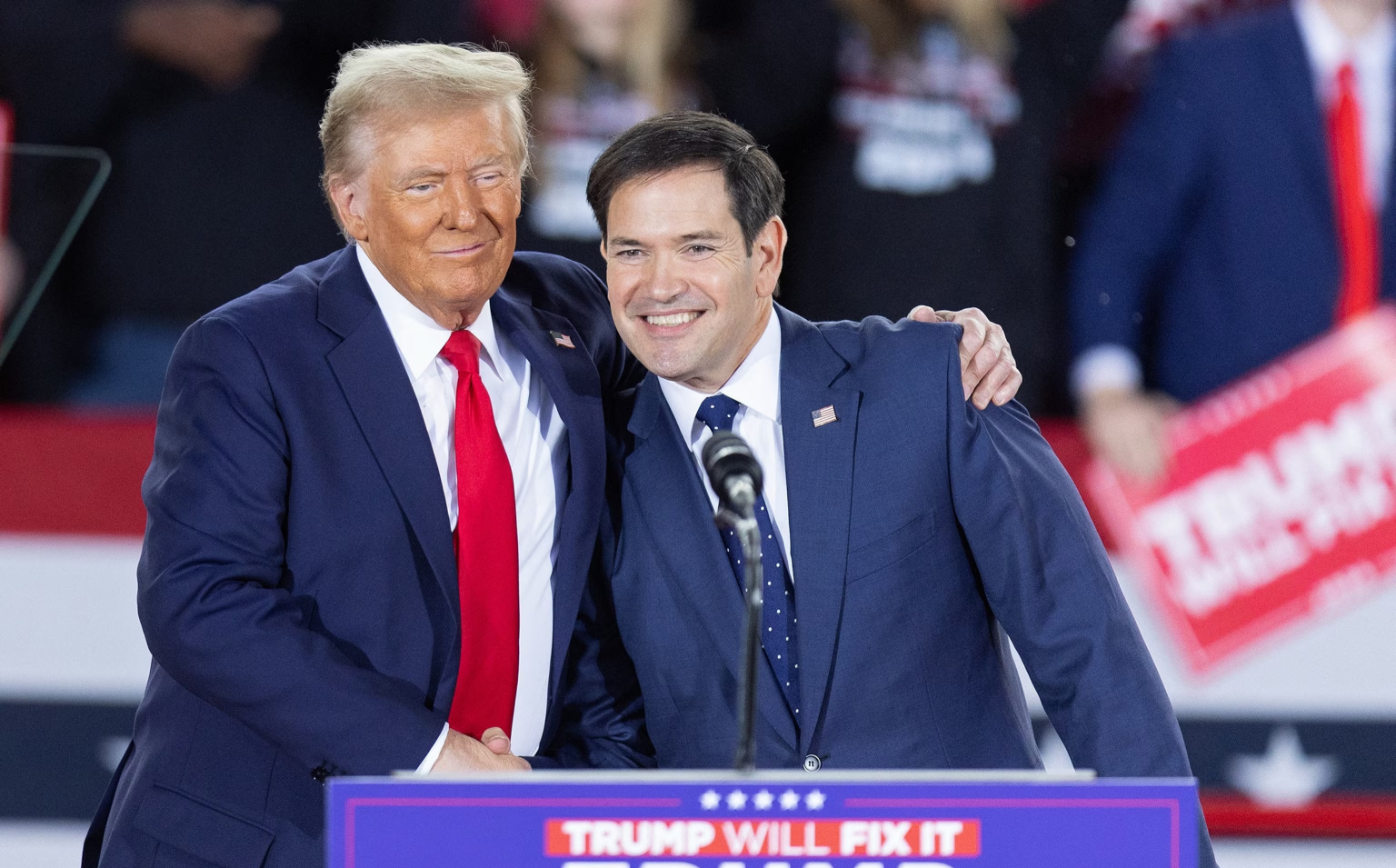Who is Marco Rubio?
Marco Rubio, a U.S. Senator from Florida since 2010, has built a reputation as a strong voice on national security and foreign policy, often expressing concern over U.S. adversaries like China, Iran, and Venezuela. Born to Cuban immigrants, Rubio has a deep-seated interest in promoting democracy and opposing authoritarian regimes. This background, combined with his role as vice chair of the Senate Intelligence Committee, has given Rubio a firm foundation in foreign policy.

Initially known for his hardline stance on international issues, Rubio has recently moderated some of his views, especially around military commitments and economic policies. Nevertheless, he remains a prominent voice on the international stage and could leverage his role as Secretary of State to bring a nuanced approach to Trump’s “America First” doctrine.
Marco Rubio Secretary of State: What It Means for U.S. Foreign Policy
If confirmed as Secretary of State, Rubio would be responsible for implementing Trump’s foreign policy agenda, which is anticipated to prioritize national interests while pulling back on some traditional U.S. military commitments. This approach aligns with Rubio’s recent calls for European nations to shoulder more responsibility for their own defense. For example, Rubio has previously argued that the U.S. should not act as Europe’s primary defense provider, a view that resonates with Trump’s stance on NATO and military spending.
Rubio’s expertise on China also makes him a valuable ally for Trump in addressing tensions with Beijing. He has been a prominent China critic, leading legislation targeting Beijing’s influence over U.S. technology and infrastructure. His tough stance led to Chinese sanctions against him in 2020, underscoring his commitment to countering Chinese expansionism.
Rubio – Trump: The Evolving Relationship Between
While Rubio and Trump were once at odds — notably clashing during the 2016 presidential primaries — their relationship has evolved significantly. During Trump’s third presidential run, Rubio emerged as a key foreign policy advisor, appearing frequently with Trump on the campaign trail. Rubio’s shift towards Trump’s views on NATO and military spending has further solidified their partnership.
Trump’s decision to consider Rubio as Secretary of State highlights both Rubio’s foreign policy credentials and his ability to align with Trump’s objectives. This appointment could be a signal to U.S. allies and adversaries alike of the administration’s commitment to a strong, assertive international policy.
Mike Waltz for National Security Adviser: What to Expect
In addition to Rubio, Trump has selected Florida Congressman Mike Waltz as his likely National Security Adviser. A former Special Forces officer with extensive experience in defense, Waltz is one of the most vocal critics of China in Congress and has advocated for a stronger U.S. stance on national security.

Waltz has criticized U.S. reliance on NATO, urging European allies to increase their defense spending. His position aligns with Trump’s call for European countries to bear a greater share of defense costs. Waltz’s nomination reinforces Trump’s emphasis on loyalty and assertive foreign policy, mirroring the dynamics of his first administration.
Rubio and Waltz: A Shift in U.S. Foreign Policy
The appointments of Rubio and Waltz could shape a U.S. foreign policy that is assertive but selective in its international commitments. Rubio’s experience and evolving views make him a diplomatic choice who can promote Trump’s America First policy while engaging thoughtfully on complex global issues. Waltz, meanwhile, brings a tactical focus to national security, particularly regarding China and defense spending.
U.S. Foreign Policy Under Trump’s New Team
As Trump assembles his team, Rubio and Waltz represent a balanced approach to U.S. foreign policy, combining diplomatic experience with a commitment to national security. These appointments may signal a recalibration of U.S. international priorities, focusing on diplomacy in some regions while demanding that allies contribute more to collective defense efforts. With Rubio as Secretary of State and Waltz as National Security Adviser, the U.S. is likely to pursue a foreign policy that seeks to protect American interests while encouraging greater self-reliance among its allies.


